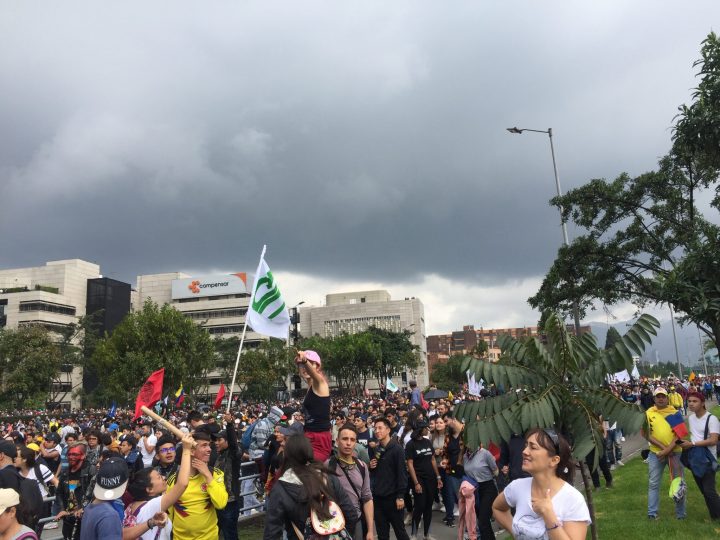By Alicia Muñoz
On November 21, Colombia experienced a historic national strike. Nationals mobilized throughout the country to protest against the government of President Ivan Duque.
Different sectors such as Indians, lgtbi, Afro communities, social leaders, artists, peasants, teachers, students, among others were the protagonists of this meeting, to demand that the government not allow more deaths in Colombia of social leaders, former guerrillas, indignation over the death of children in combat, recruitment of minors, the reactivation of false positives, that the labour and pension reform is not made, there is protest over the financing law that fell in the Constitutional Court but that was returned to the Congress of the Republic, According to President and Finance Minister Alberto Carrasquilla it would work to subtract the tax burden of companies and generate more employment, in addition to unions such as Anif (national association of financial institutions) proposed to pay only 75% of the minimum wage to young people so they could easily enter the labour market, demand better education, non-discrimination, etc. were some of the reasons. However, For several days the country was in expectation, since the government, despite mentioning that it would listen to the people, generated fear and polarization. Since Tuesday 19th, the country’s fluvial and terrestrial borders with Peru, Ecuador, Venezuela and Brazil were closed. According to the president, this unusual measure is to prevent the entry of foreigners who were going to generate riots (15 Venezuelans who wanted to infiltrate the marches were expelled to date), the president gave the freedom to the mayors of the country to install curfews as it happened in the city of Cali, Valle del Cauca, and there is also dry law throughout the country.
Most of the marches took place on Thursday peacefully, amongst dances, songs, human chains, but at different points the esmad (mobile riot squads) was violent. A strong panorama was observed as students tried to reach Bogotá’s El Dorado airport. The staff of the esmad had the order not to allow the arrival of the demonstrators at this point in the city, so a large group of marchers were intercepted at the height of 68th Street and 26th Street, where people peacefully tried to pass and the esmad attacked, generating riots and creating strong concentration at the National University of Colombia where later confrontations occurred.
The surprise was at night when people started protesting from their homes with pots and pans; everyone united regardless of sex, race, age and social stratum.
In Colombia there is expectation, it has been called today November 22nd in the main cities to carry out a pots and pans protest, it is expected that the government responds with good solutions to the demands of the people. Colombians are tired of so much violence and social inequality, which is repeated year after year.
Colombia joins the protests that have taken place in Latin America, demanding that the government be up to the task of generating important social changes.
Translation Pressenza London










